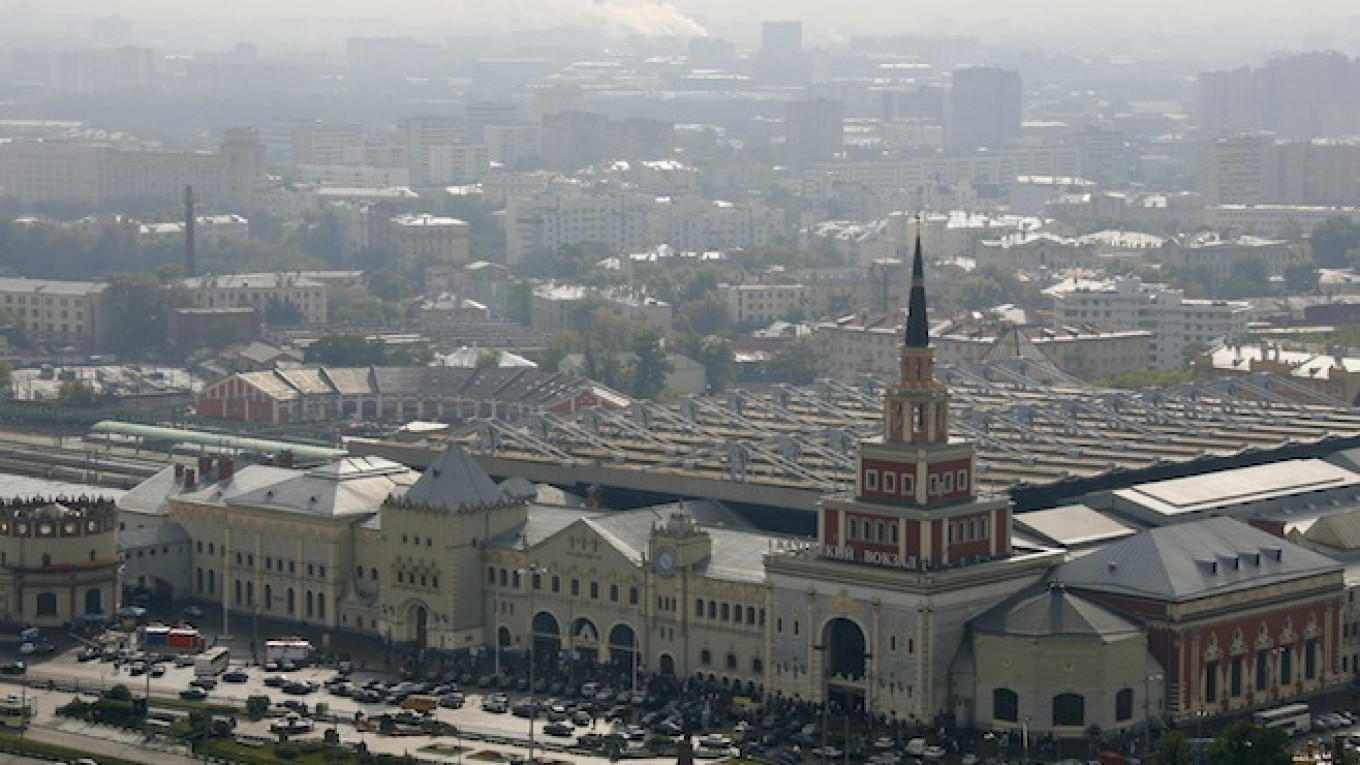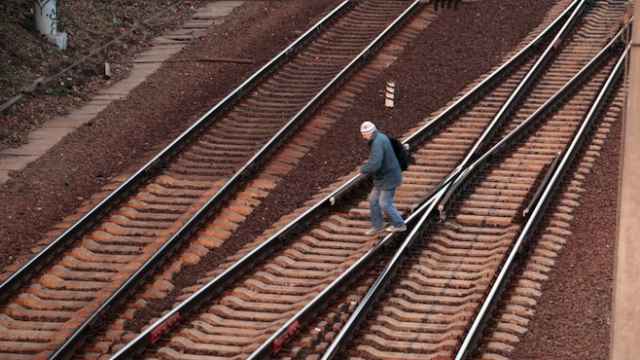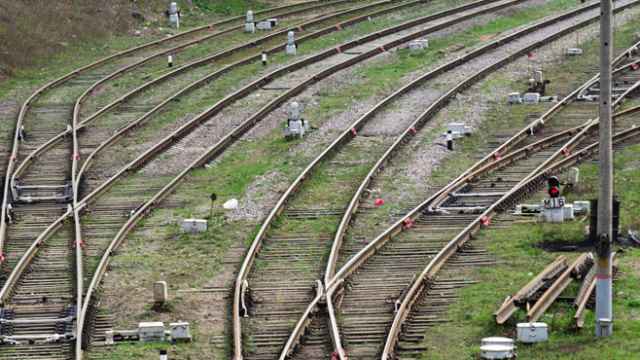A planned high-speed railway stretching some 7,000 kilometers between Moscow and Beijing will cost about 7 trillion rubles ($153 billion) to build, a Russian Railways executive was quoted as saying Friday.
Over half of the sum, or 4 trillion rubles ($87.5 billion), is expected to come from Chinese investors, said Alexander Misharin, who heads Russian Railways' subsidiary High-Speed Rail Lines, news agency TASS reported.
Russia and China signed a memorandum of cooperation on the development of a high-speed rail network in mid-October that included construction of a high-speed rail line from Moscow to Beijing.
Trains are expected to hurtle along the new line at an average speed of 400 kilometers per hour, cutting the travel time between the two cities from the current six or more days to about 33 hours.
A high-speed link between Moscow and Kazan, almost 800 kilometers to the east, is intended as the first section of the continent-spanning new railroad. But it is not clear who will foot the 1 trillion ruble ($21 billion) bill for the project.
Officials have suggested that funds could be allocated from the National Welfare Fund, one of Russia's sovereign wealth funds. Another option is that Chinese investors provide part of the sum, or about 400 billion rubles ($8.7 billion). However, no investors have yet committed themselves.
Gennady Timchenko, a well-connected billionaire who after appearing on Western sanctions lists earlier this year was appointed head of the Russian-Chinese Business Council, told reporters on Thursday that he was optimistic that China would provide financial support for the project, which he said could carry more than 200 million passengers a year.
China holds over $2 trillion in U.S. Treasury bills that offer no real returns, but “investment in the railway would be pay for itself," Timchenko said. "Maybe not overnight, but we would create infrastructure connecting Asia with Europe for future generations.”
Contact the author at a.panin@imedia.ru
A Message from The Moscow Times:
Dear readers,
We are facing unprecedented challenges. Russia's Prosecutor General's Office has designated The Moscow Times as an "undesirable" organization, criminalizing our work and putting our staff at risk of prosecution. This follows our earlier unjust labeling as a "foreign agent."
These actions are direct attempts to silence independent journalism in Russia. The authorities claim our work "discredits the decisions of the Russian leadership." We see things differently: we strive to provide accurate, unbiased reporting on Russia.
We, the journalists of The Moscow Times, refuse to be silenced. But to continue our work, we need your help.
Your support, no matter how small, makes a world of difference. If you can, please support us monthly starting from just $2. It's quick to set up, and every contribution makes a significant impact.
By supporting The Moscow Times, you're defending open, independent journalism in the face of repression. Thank you for standing with us.
Remind me later.






